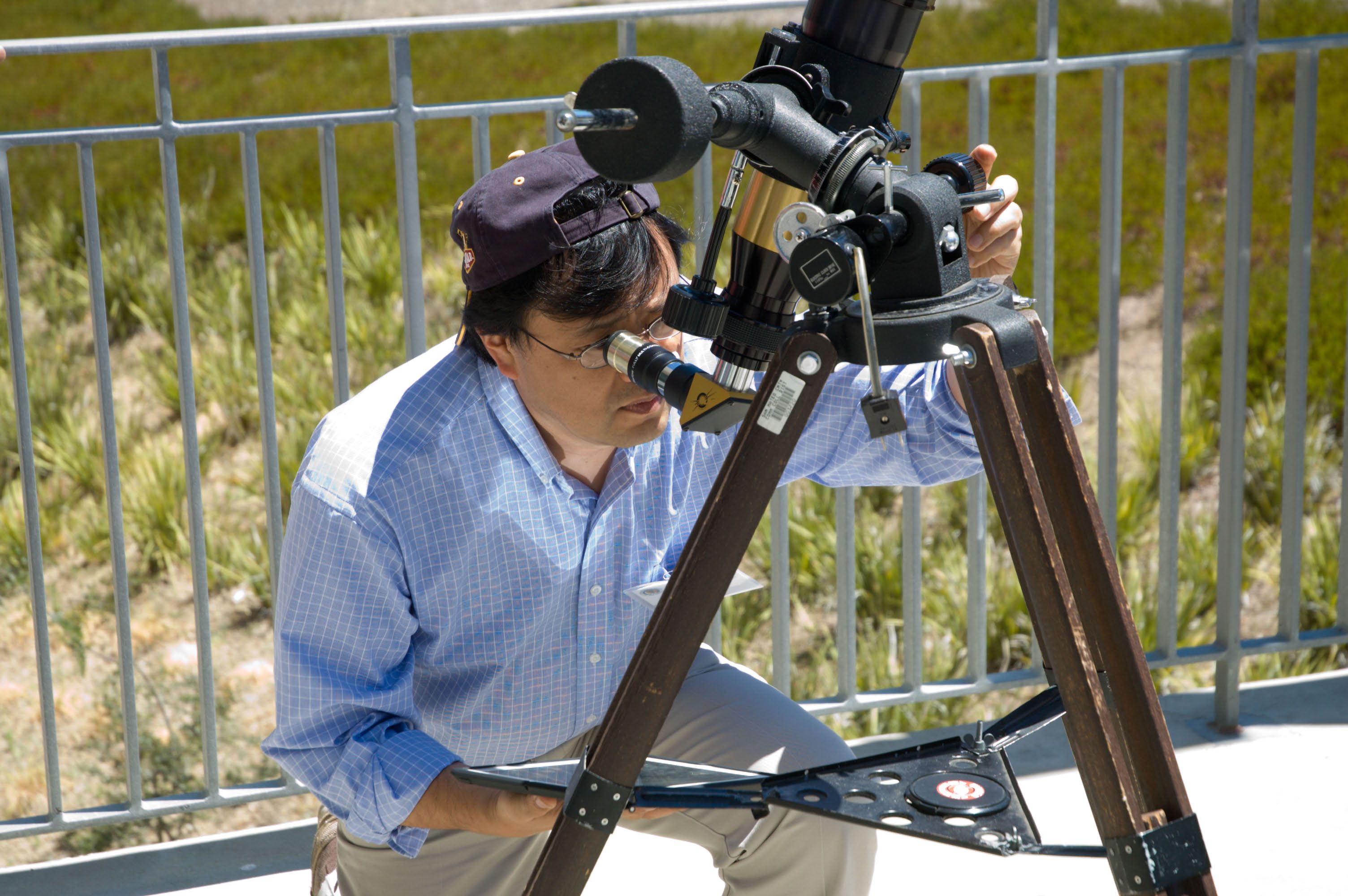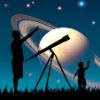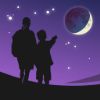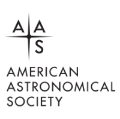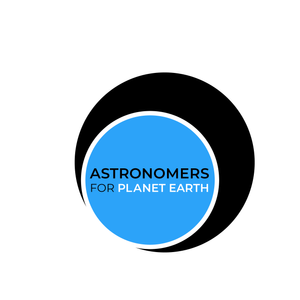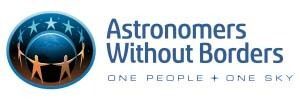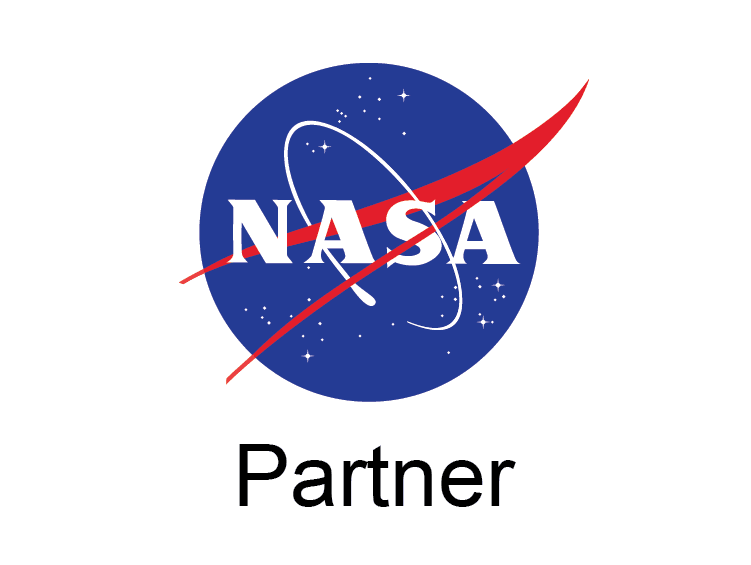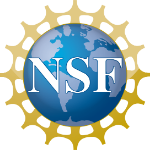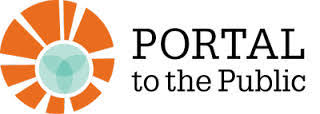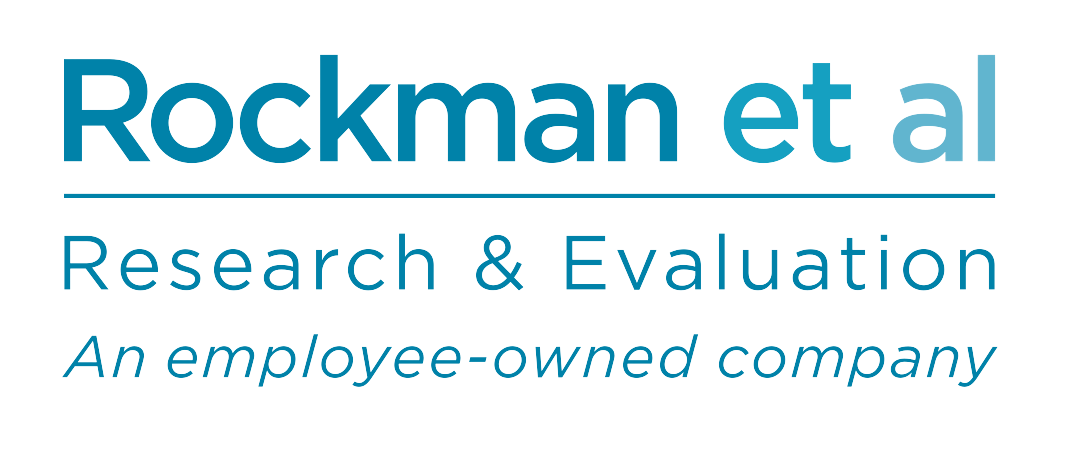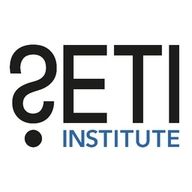Amateur Astronomers
Amateur astronomers around the world focus their time and telescopes on public outreach within their communities. From hands-on activities at the eyepiece to research on astronomy club culture, the ASP is committed to creating resources to support their volunteer efforts.
NEW! ASP Confidence & Curiosity: Girls at the Telescope Videos
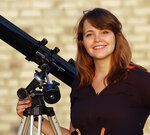
Funded by NASA, this series of five videos are designed for amateur astronomers, museum educators and others who want to make their public engagement more girl-friendly and inclusive. Each video corresponds with one of these welcoming concepts: Growth Mindset, Micro-messages and Bias, Diverse Storytelling, Questioning Techniques and Dealing with Misconceptions.
Also view three new webinars about the new Girl Scouts space science badges! Each 60 minute session includes two levels of Girl Scouts (Daisy and Brownie, Junior and Cadette, and Senior and Ambassador) to get you ready for your next outreach session with Girl Scouts, including activities.
NASA Night Sky Network

The NASA Night Sky Network is a community of more than 400 astronomy clubs across the U.S. that share their time and telescopes to engage the public with unique astronomy experiences. The ASP provides training and materials to enhance clubs outreach activities, and inspires more than four million people through their participation in 30,000+ plus events.
Interested in astronomy? Find your local club and events.
Already a member of a club? Access free resources.
Looking for informal astronomy activities and demos? Look no further.
Started in 2004 with the PlanetQuest office, the ASP has administered the Night Sky Network for NASA JPL, working with missions and Mission Directorates to bring the science of NASA to the amateur astronomy community.
Girl Scouts Stars
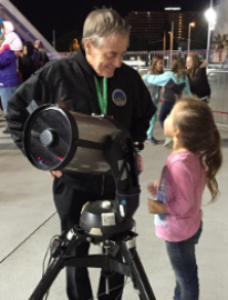
The ASP is partnered on a NASA Cooperative agreement to create new astronomy badges for Girl Scouts, connect them with their local astronomy clubs, and train amateur astronomers to make their outreach more girl-friendly.
Find out how to provide better outreach with girls through our Resources for Working with Girl Scouts page.
Big Astronomy
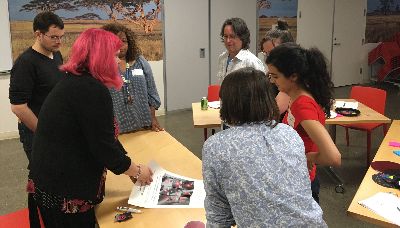
Big Astronomy: People, Places, Discoveries delivers a unique learning experience for planetarium visitors around the world by integrating virtual interactions with those living and working at Chilean observatories with curricular resources and a planetarium show. The ASP is creating toolkits of informal activities for amateur astronomers and museum educators to be released with the planetarium show in 2020. More information.
Eclipse Megamovie
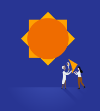
The Astronomical Society of the Pacific led the volunteer effort for this historical project, working with Google and UC Berkeley to create a movie of totality over the entire 90 minute path across the US.
Sharing the Universe
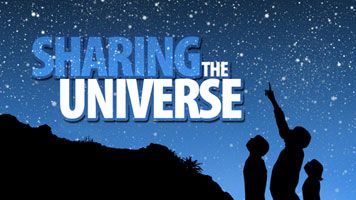
Legacy Program
Sharing the Universe was an NSF research grant dedicated to researching the culture of astronomy clubs and identifying solutions to address the challenges of effective and sustained public outreach.
These education and public outreach (EPO) activities took place in a number of settings, such as visiting a classroom or providing “star parties” for the public under the night sky with audiences of all ages. But even the most enthusiastic and energetic amateur can encounter difficulty when trying to establish or invigorate EPO initiatives in his or her astronomy club.
The overall intended impacts were to help amateurs find ways to improve the quality and effectiveness of their EPO activities and create to the extent possible a more connected and active “network” of EPO-engaged astronomy clubs nationwide. We will also communicated what we discovered with other hobbyist groups (e.g., bird-watching organizations, gemology clubs, etc.) so that those also interested in enhancing EPO could learn more about and make use of our experiences with Sharing the Universe.
Helpful Resources:
Sharing the Universe: Best Practices for Outreach

The Sharing the Universe project is funded by the National Science Foundation and is supported by the Division of Research on Learning in Formal and Informal Settings (DRL) of the National Science Foundation under Grant Number DRL 0638873. Any opinions, findings, and conclusions or recommendations expressed in the material are those of the authors and do not necessarily reflect the views of the National Science Foundation.

